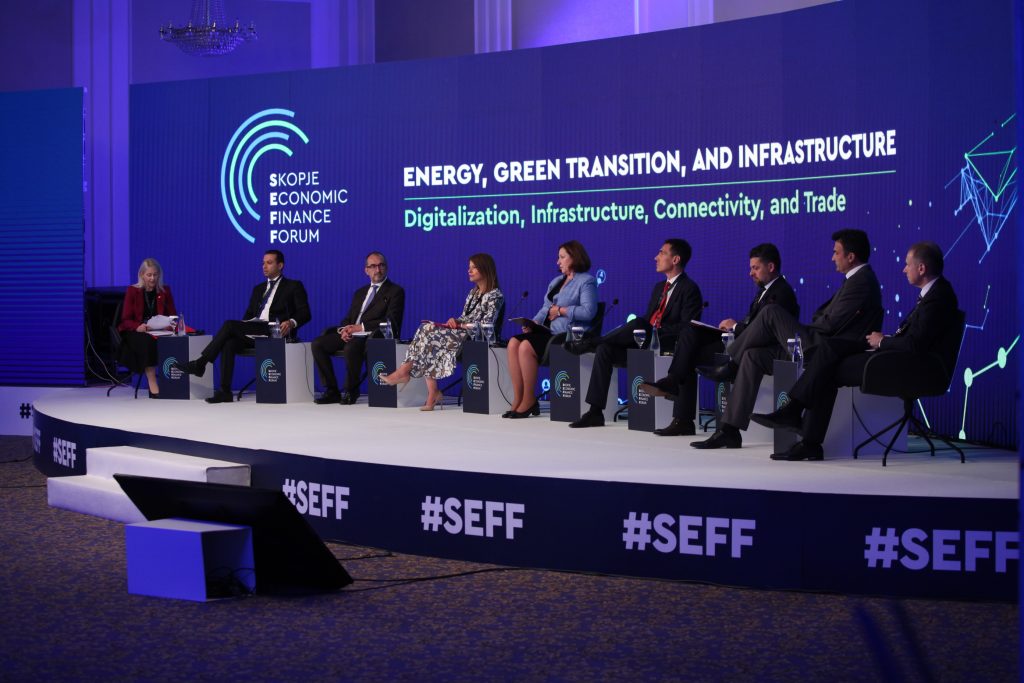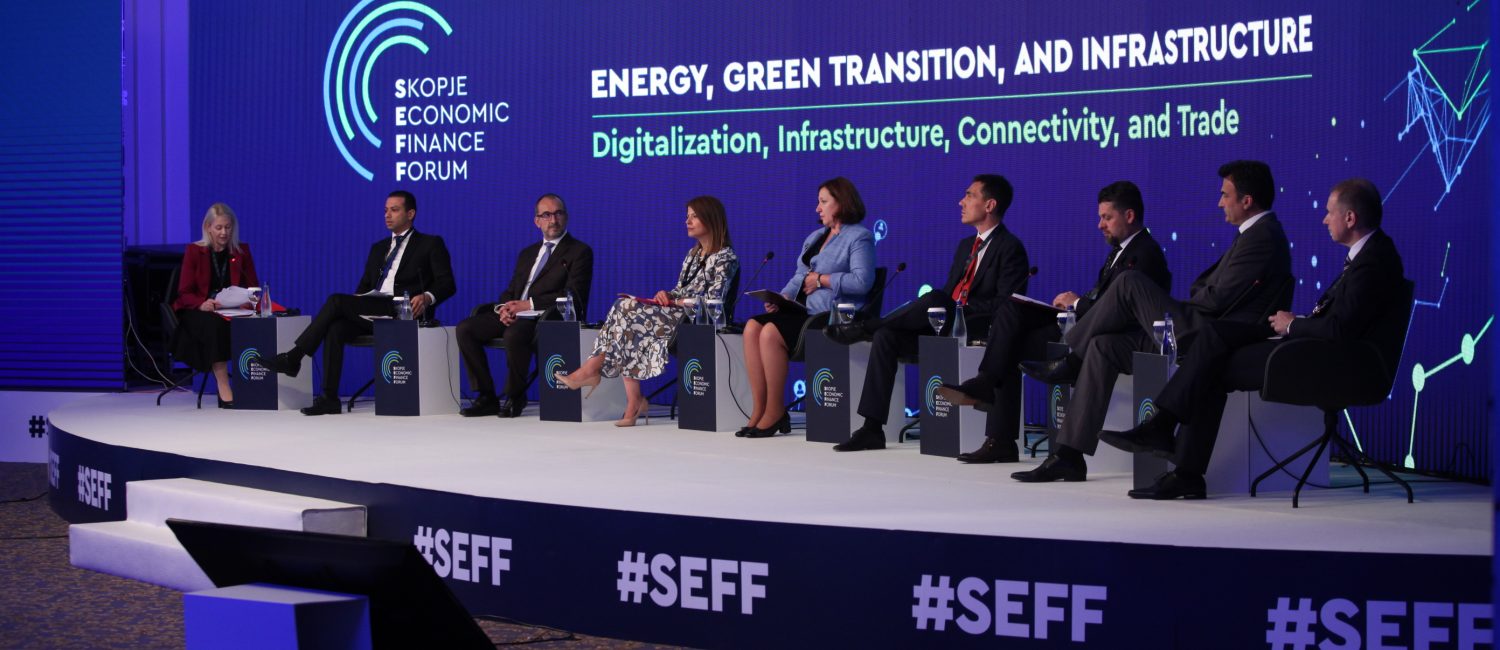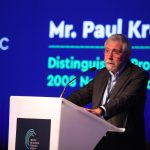31st May 2022, Skopje – By having an ambitious investment agenda in place, as regards infrastructure, green transition and digitalization in the country and the region, in the medium term, sustainable growth rates of 5% or even higher ones, can be achieved. Safe energy future can be ensured only by making investments in the field of energy infrastructure, as well as when creating models and raising awareness about greater energy efficiency among consumers, which in times of energy crisis, is a the proper way of coping with the rising prices, particularly in the developing countries. Better connectivity of the region and digitalization will contribute to development of all economies in the Western Balkan region, this being the proper way for boosted competitiveness in the region, thus attracting more investors as well.

These are the brief conclusions from the discussion about the third Pillar “Digitization Infrastructure, Connectivity and Trade” on the second day of Skopje Economic and Finance Forum – SEFF, with the opening speech being delivered by the President of the country, Stevo Pendarovski and the President of the Parliament, Talat Xhaferi. The message they conveyed was that development can be ensured by achieving four goals – economic growth acceleration, better environmental protection and redefined energy policy, digitalization and education, as well as inclusive development.
During their opening addresses, thus launching the discussion about the third pillar, the President of the European Bank for Reconstruction and Development, Odile Renaud-Basso and the Vice President of the European Investment Bank, Lilyana Pavlova, pointed out that these international financial institutions provided and are planning to further provide substantial support for the Western Balkan countries, amounting to over EUR 1 billion. They also talked about coping with the climate change, the investments as regards the energy sustainability, as well as innovative solutions for diversification of the energy sources, also covering the support aimed at transport infrastructure projects.
As regards the Panel for Energy and Green Transition, speeches were delivered by Minister of Environment, Naser Nuredini, Director of the Energy Community Secretariat, Artur Lorkowski,Head of EU Delegation, David Geer, UNDP Resident Representative, Armen Grigoryan, CEB Loans and Social Development Director, Cristiane Tabacuru, Director KfW Development Bank, Rene Eschemann, CEO of EVN, Stefan Peter, as well as President of the Regulatory Commission for Energy, Marko Bislimovski, with Aleksandra Nakjeva Ruzin, Professor of Economics and Public Finance at University American College Skopje, as the moderator thereof.
The main messages of this Panel, with the points of discussion being the challenges of the energy crisis for the countries in the region, were that it is necessary to invest in new energy facilities, diversify energy supply sources and orient towards renewable energy sources, by also focusing on greater awareness about energy savings and energy efficiency. It was also underlined that what was very significant during last year was that the focus was placed on making investments in renewable energy in our country, since only they generate additional energy sources of around 80 megawatts per year, which is equal to the capacity of HPP Kozjak.
Participants delivering their speeches at the Panel “Digitalization, Infrastructure, Connectivity and Trade”, were the following: Minister of Transport and Communications, Blagoj Bochavrski, Regional Manager, Central and Southeast Europe, International Finance Corporation, Ary Naїm, Director of the Public Revenue Office, Sanja Lukarevska, Director of the Customs Administration, Slavica Kutirov, Head of Regional Representation of European Investment Bank for Western Balkans, Alessandro Bragonzi, Director of the Agency for Electronic Communications (AEK), Jeton Akiku, CEO of A1, Metodija Mircev and CEO of Makedonski Telekom, Nikola Ljusev, with the Professor of Economics, Faculty of Economics at the State University of Tetovo, Shiret Elezi as the moderator thereof.
This Panel highlighted the direct link between infrastructure and economic growth – i.e. the fact that investments in the field of infrastructure contribute to economic growth, with the economic growth encouraging the development of even better infrastructure. The continuous increase of capital expenditures over the past years was also pointed out, recording improved execution upon applying the CAPEF mechanism in the past period. This year, the capital expenditures are projected at all-time record level, amounting to over half a billion euros, geared toward making investments in the Road and Rail Corridors 8 and 10, national gas pipelines, as well as major environmental infrastructure projects, including capital investments in the field of education and health.
















